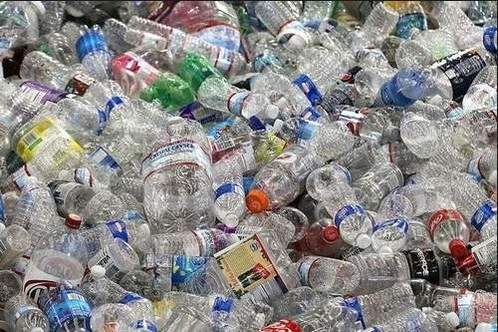
21 Apr “Mutant” Enzyme Eats Plastic
Sometime accidents are good things. As in the case of a recent discovery by researchers in the U.S. and UK. We curated this story from EcoWatch. Finally a happy headline – a solution, or perhaps just a partial solution, for a global challenge: plastic pollution. Anyway, hope in an enzyme. Read on for details.
Researchers in the UK and the U.S. have inadvertently engineered an enzyme that eats up plastic.
The enzyme is able to digest PET (polyethylene terephthalate)—the same material used in the ubiquitous plastic bottle that’s clogging up landfills, coastlines and oceans around the world.
Amazingly, this discovery only happened by chance. Scientists from the University of Portsmouth in the UK and the U.S. Department of Energy’s National Renewable Energy Laboratory (NREL) were examining the structure of a natural enzyme, Ideonella sakaiensis, found in 2016 at a Japanese waste recycling center. This enzyme could already break down PET plastic—it just doesn’t do it very quickly.
To understand how Ideonella sakaiensis evolved, the research team “tweaked” the structure of the enzyme by adding some amino acids, according to John McGeehan, a Portsmouth professor who co-led the work. They ended up creating an enzyme that worked even faster than the natural one.
“Surprisingly, we found that the PETase mutant outperforms the wild-type PETase in degrading PET,” said NREL materials scientist Nic Rorrer.
McGeehan added, “Serendipity often plays a significant role in fundamental scientific research and our discovery here is no exception.”
The modified enzyme, called PETase, can break down PET in just a few days—a stunning discovery that could help fight the world’s escalating plastic crisis.
 Electron microscope image of enzyme degrading PET plastic Dennis Schroeder / NREL
Electron microscope image of enzyme degrading PET plastic Dennis Schroeder / NREL
“After just 96 hours you can see clearly via electron microscopy that the PETase is degrading PET,” said NREL structural biologist Bryon Donohoe.
“And this test is using real examples of what is found in the oceans and landfills.”
As BBC News explained, PETase works by reversing the manufacturing process by reducing polyesters back to their building blocks so it can be used again.
When you drink soda, water or juice from a plastic bottle, those bottles are almost never made from recycled plastic. Additionally, as the Guardian noted, the plastic bottles that do get recycled can only be turned into polyester fibers for carpet or fabric.
But this new finding suggests a way to turn plastic bottles back into plastic bottles.
“They could be used to make more plastic and that would avoid using any more oil … Then basically we’d close the loop. We’d actually have proper recycling,” McGeehan told BBC News…


Sorry, the comment form is closed at this time.